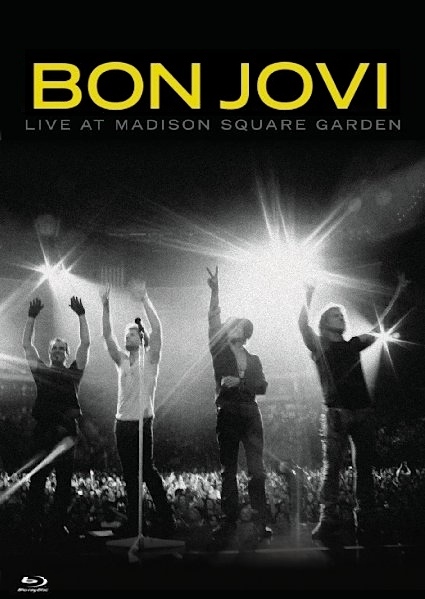
Michael Collins – Vaughan Williams: Symphony No. 5 in D Major – Finzi: Clarinet Concerto, Op. 31 (2020)
FLAC (tracks) 24 bit/96 kHz | Time – 01:08:30 minutes | 1,11 GB | Genre: Classical
Studio Masters, Official Digital Download | Front Cover | © BIS
The distinguished clarinettist Michael Collins has in recent years also gained recognition as a conductor, appearing with eminent orchestras across the world. The present disc sees his recording debut as a conductor of symphonic repertoire, from which he has chosen Vaughan Williams’s Fifth Symphony – one of the composer’s best-loved works. Written during the Second World War and with its symphonic predecessor displaying a convulsive fury and desolation, the Fifth is surprisingly serene and pastoral. Vaughan Williams dedicated it ‘without permission’ to Jean Sibelius – who in his diary described his impression on first hearing the work as ‘a caress from a summer world.’ On the present release, Vaughan Williams is followed by his younger colleague and friend Gerald Finzi, who he once advised to write a symphony: ‘They’re ever so easy’. Finzi was not convinced, and remains known as a composer of primarily vocal music, but among his few instrumental works is a Concerto for Clarinet, the instrument widely regarded as the most voice-like of all. For this, Michael Collins reverts to his customary role as soloist, conducting the strings of the Philharmonia Orchestra from the clarinet.
No true fan of Vaughan Williams would miss a new recording of his greatest symphony, which also happens to be the greatest symphony of the entire English repertoire. The Symphony No. 5 was perfectly constructed – it had to be to justify its dedication to Jean Sibelius. It was composed between 1938 and 1943 in the wake of The Pilgrim’s Progress, an unfinished opera whose themes the composer reused, notably in the first, third (the sublime Romanza) and fourth movements. The work is among the composer’s very lyrical and meditative works but also provides moments of great dramatic force with occasional violent bursts and currents of uneasiness. The dedication to Sibelius can also be explained by the occasional use of similar compositional techniques, such as the use of tremolos and pedals in the lower registers (particularly in the first part of Romanza), however, Vaughan Williams’ technique remains completely polyphonic, in the classical tradition. At the head of the Philharmonia Orchestra, Michael Collins brings us this well-polished version, but some music lovers will perhaps also recall the many moving versions by Sir John Barbirolli (HMV, 1962), Bryden Thomson (Chandos, 1987) and Vernon Handley (EMI, 1987)! First and foremost a clarinettist, Michael Collins makes the most of his first release as a conductor for BIS Records by performing his version of the very pastoral Concerto for clarinet by Finzi, a composer whose Five Bagatelles, Op. 23a he recorded for Chandos Records in 2012. Although similar to Vaughan Williams, Finzi developed a more neo-classical style and his works are strongly influenced by the music of J.S. Bach whom he adored, as he demonstrated through ritornellos that were often very moving. Concerto for clarinet bears less of those traces than Dies Natalis, for example, but its delicate clarinet is like a lone voice in a world of madness. Unforgettable. – Pierre-Yves Lascar
Tracklist:
Ralph Vaughan Williams (1872 – 1958): Symphony No. 5 in D Major:
1 Symphony No. 5 in D Major: I. Preludio
2 Symphony No. 5 in D Major: II. Scherzo
3 Symphony No. 5 in D Major: III. Romanza
4 Symphony No. 5 in D Major: IV. Passacaglia
Gerald Finzi (1901 – 1956): Clarinet Concerto, Op. 31:
5 Clarinet Concerto, Op. 31: I. Allegro vigoroso
6 Clarinet Concerto, Op. 31: II. Adagio ma senza rigore
7 Clarinet Concerto, Op. 31: III. Rondo. Allegro giocoso
Download:
https://xubster.com/utww9n6tvqvn/MichaelC0llinsVaughanWilliamsSymph0nyN0.5inDMaj0rFinziClarinetC0ncert00p.3120202496.part2.rar.html
https://hexload.com/m7ffo43u897d/MichaelC0llinsVaughanWilliamsSymph0nyN0.5inDMaj0rFinziClarinetC0ncert00p.3120202496.part1.rar
https://hexload.com/e2lo11328me7/MichaelC0llinsVaughanWilliamsSymph0nyN0.5inDMaj0rFinziClarinetC0ncert00p.3120202496.part2.rar






![Philharmonia Orchestra & Michael Collins – W. A. Mozart: Symphonies 34, 35 and 36 (2024) [Official Digital Download 24bit/192kHz]](https://imghd.xyz/images/2024/04/23/00acc2af.jpg)
![Michael Collins – Michael Collins Plays British Clarinet Sonatas, Vol. 1 (2012/2022) [Official Digital Download 24bit/96kHz]](https://imghd.xyz/images/2023/01/28/gnl8japzw6xvc_600.jpg)
![Michael Collins, BBC Philharmonic, Rumon Gamba – Arnold: Clarinet concerto and Orchestral works (2023) [Official Digital Download 24bit/96kHz]](https://imghd.xyz/images/2023/01/28/x7wy2awaiddxc_600.jpg)
![Michael Collins – Michael Collins Plays British Clarinet Sonatas, Vol. 2 (2013/2022) [Official Digital Download 24bit/96kHz]](https://imghd.xyz/images/2023/01/28/iu9hnu5fwptvc_600.jpg)
![Michael Collins, Philharmonia Orchestra, Wigmore Soloists, Robin O’Neill – Mozart & Birchall: Clarinet Concertos (2022) [Official Digital Download 24bit/96kHz]](https://imghd.xyz/images/2022/04/22/g4bo76ty801sc_600.jpg)
![Michael Collins & Stephen Hough – Brahms: 3 Sonatas (2021) [Official Digital Download 24bit/96kHz]](https://imghd.xyz/images/2023/07/04/xrn9f6qli48yc_600.jpg)
![Michael Collins & Noriko Ogawa – La clarinette parisienne (2021) [Official Digital Download 24bit/96kHz]](https://imghd.xyz/images/2023/07/04/rpp4ygcggexwb_600.jpg)
![Michael Collins & Michael McHale – The Lyrical Clarinet, Vol. 3 (2020) [Official Digital Download 24bit/96kHz]](https://imghd.xyz/images/2023/07/04/n6v6adgxk570a_600.jpg)
![Michael Collins & Michael McHale – Reger: Clarinet Sonatas (2017) [Official Digital Download 24bit/96kHz]](https://imghd.xyz/images/2023/07/04/as2er0gulkiaa_600.jpg)
![Swedish Chamber Orchestra & Thomas Dausgaard, Michael Collins – Synergy (2022) [Official Digital Download 24bit/96kHz]](https://imghd.xyz/images/2022/11/01/pvfhhq2jfzadc_600.jpg)
![BBC Symphony Orchestra, Michael Collins – Strauss: Concertante Works (2019) [Official Digital Download 24bit/48kHz]](https://imghd.xyz/images/2022/08/25/t9al5zm0dw6tc_600.jpg)
![James Ehnes, Michael Collins, Amy Schwartz Moretti, Andrew Armstrong – Bartók: Chamber Works for Violin, Vol. 3 (2014) [Official Digital Download 24bit/96kHz]](https://imghd.xyz/images/2022/08/23/joeyj5kdl6wia_600.jpg)
![Brodsky Quartet & Michael Collins – Brahms: String Quartet in A Minor & Clarinet Quintet (2014/2022) [Official Digital Download 24bit/96kHz]](https://imghd.xyz/images/2022/06/21/0095115181720_600.jpg)
![City Of London Sinfonia & Michael Collins – Weber Clarinet Concertos Nos. 1 & 2, Clarinet Concertino & Horn Concertino (2012/2022) [Official Digital Download 24bit/96kHz]](https://imghd.xyz/images/2022/06/21/y1rdm5zocqbnc_600.jpg)